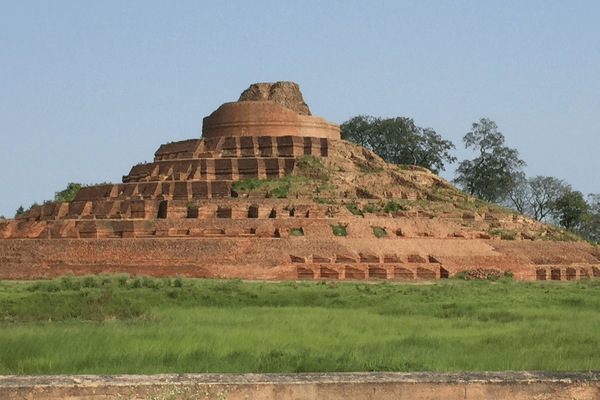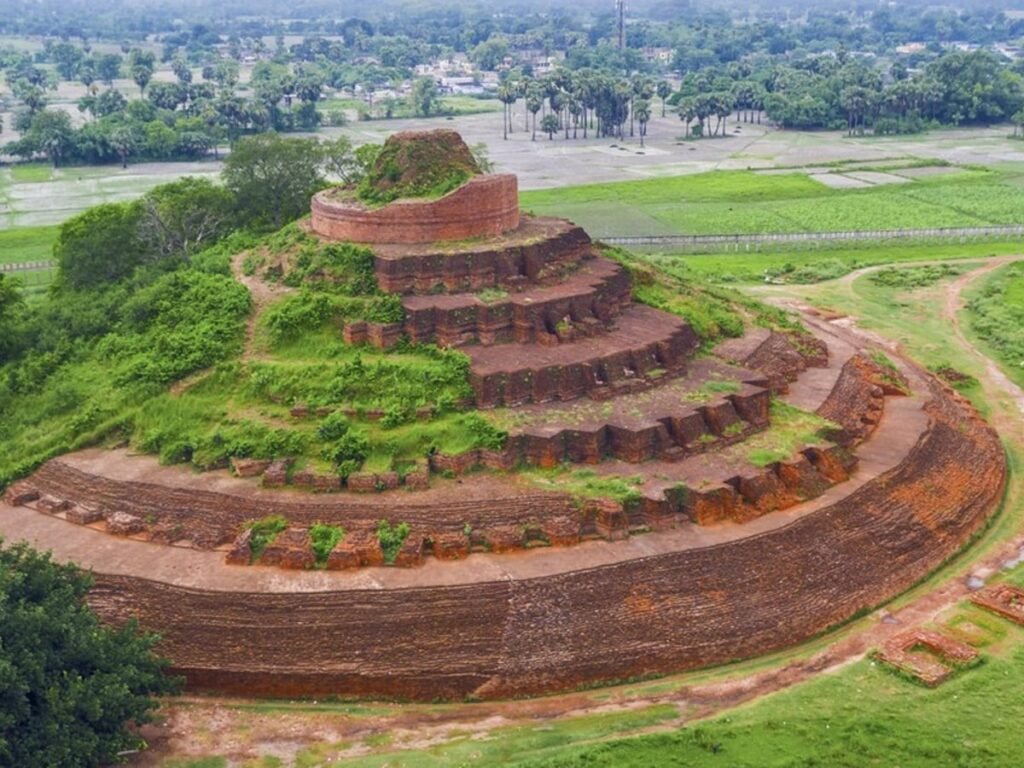Kesariya Stupa is acclaimed as the world’s tallest and largest Buddhist stupa.
About Kesariya Stupa:
- It is located in Kesariya, Bihar, in the East Champaran district.
- The structure, made of bricks, mud, and lime mortar, has a circular shape.
Historical Background:
- The earliest construction of the stupa is traced back to the 3rd century BCE.
- It is believed that the original stupa dates to the era of Emperor Ashoka around 250 BCE. A capital from a Pillar of Ashoka found on site supports this.
- During ancient times, Kesaria was under the domain of the Mauryas and Licchavis.
- The current structure of the stupa is linked to the Gupta Dynasty era, ranging from 200 AD to 750 AD, possibly associated with the 4th-century ruler Raja Chakravarti.
- The site’s significance is enhanced by its potential link to the Buddha’s lifetime. It is believed to align with a stupa built by the Licchavis of Vaishali, who enshrined the alms bowl given by the Buddha.
- Discovery of gold coins with seals of Emperor Kanishka of the Kushan dynasty further underscores its rich heritage.
Visits by Ancient Travelers:
- Notable ancient travellers such as Faxian (Fahien) and Xuan Zang (Hsuan Tsang) visited Kesaria and recorded valuable accounts of their journeys.
Archaeological Explorations:
- The exploration of Kesariya Stupa commenced in the early 19th century following its discovery by Colonel Mackenzie in 1814.
- Noteworthy excavations were conducted by General Cunningham in 1861-62, and more thoroughly by an ASI team led by archaeologist K.K. Muhammad in 1998.
Significance
- Kesariya Stupa is believed to commemorate the location where Lord Buddha delivered his 22nd sermon and announced his impending death.
The stupa boasts a circumference of almost 400 feet and stands at a height of about 104 feet, surpassing Borobudur Stupa in Java, which is a world heritage monument
Ref:Source
| UPSC IAS Preparation Resources | |
| Current Affairs Analysis | Topperspedia |
| GS Shots | Simply Explained |
| Daily Flash Cards | Daily Quiz |



